Last Updated: 05/05/2025
10 Frequently Asked Kitten Questions
We've put together a list of the top 10 frequently asked questions that pet parents ask to help you get all the answers you need in one place!
Author: Dr Belinda Stancombe BVSc (Hons)
Reading Time: 11 minutes - short read
Adopting a new kitten is an exciting time for the whole family! With so much to learn as a new kitten owner it can sometimes feel overwhelming. We all want what is best for our new pet, but just knowing where to start can be a challenge!
The Pet Circle Vet Squad have put together a list of the top 10 frequently asked questions that pet parents have after first bringing their new kitten home.
Need supplies for a new kitten?
Check out our Better Kitten Bundle - a complete vet-approved kitten essentials pack, designed to help tick off your 'new kitten checklist'. It contains parasite prevention, toys, a scratcher, treats, litter, food vouchers, and more!
Filled with over $185 worth of products, our discounted price ($49.95) makes for incredible value. You couldn't ask for a more 'purrfect' welcome pack for a new kitten!
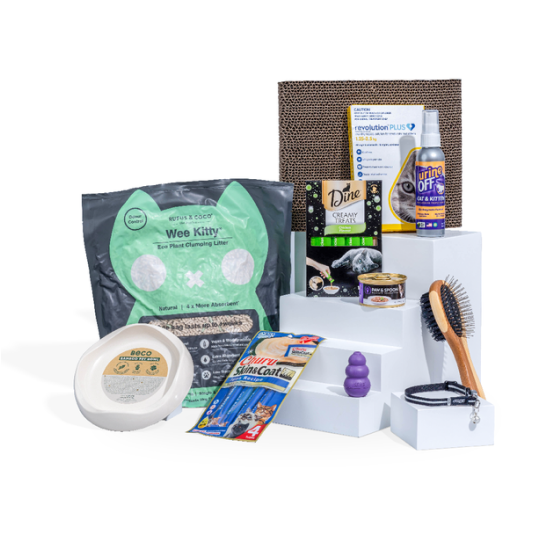
Should I Feed My Kitten Wet or Dry Food? Or Both?
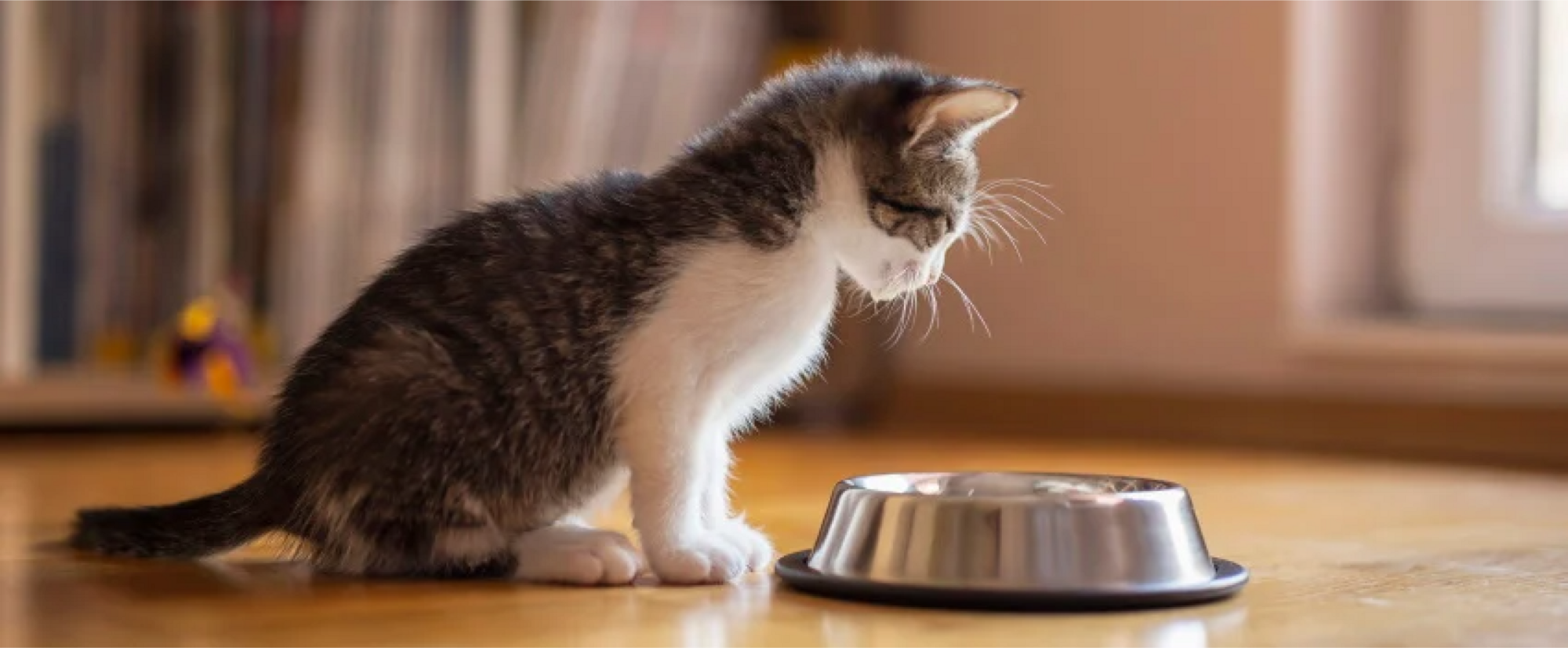
formation
Mixed feeding from an early age will help to discourage your kitten from developing strict dietary preferences and allows you to feed a range of diets. This may be important if they need a specific diet for a health condition during their life.
Want to know more? Read our article What Is The Best Kitten Food.

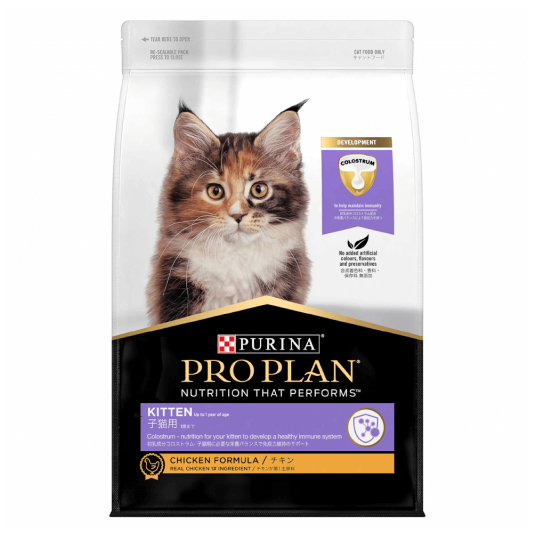
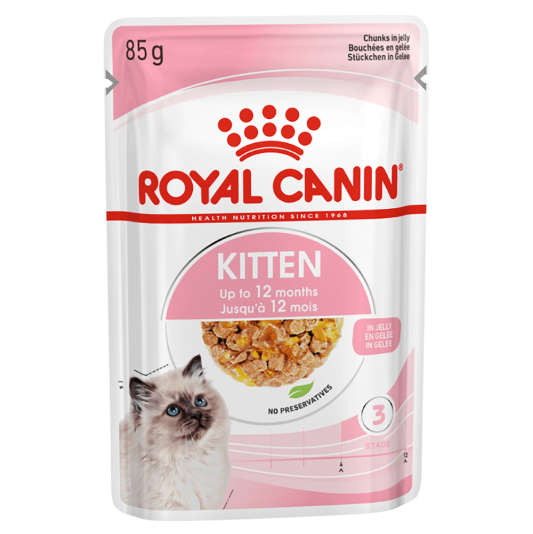
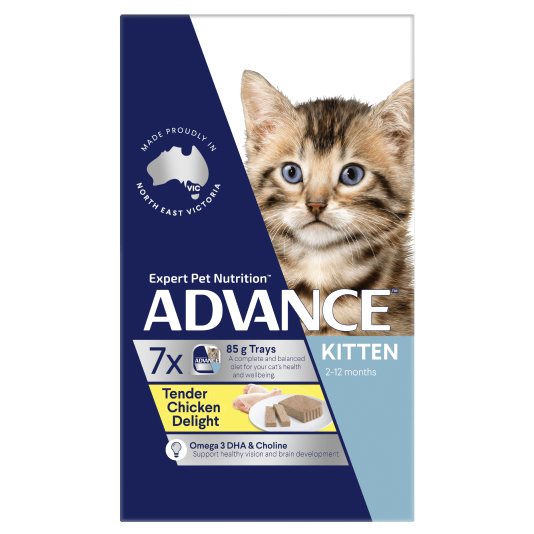
Do I Need To Vaccinate My Indoor Kitten?
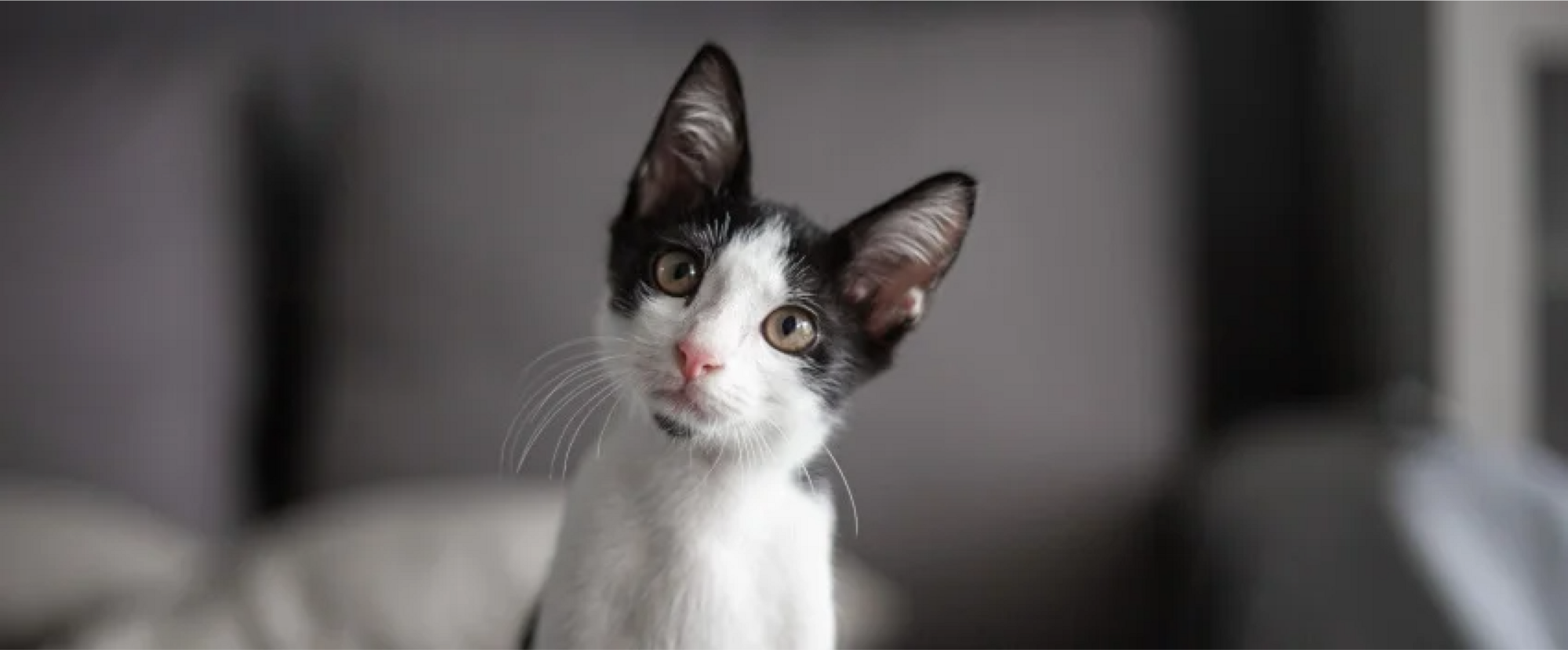
Vaccinations for kittens typically involve 3 injections spaced approximately 4 weeks apart. These usually occur at 8 weeks, 12 weeks, and 16 weeks of age but can vary depending on your location and the type of vaccine your vet uses. Once the kitten series has been completed your cat will need yearly vaccinations for life.
In general, cats in Australia are routinely vaccinated with an F3 vaccine against Feline Calicivirus, Feline Herpesvirus and Feline Parvovirus. Depending on your cat's level of risk, your veterinarian may also discuss vaccination against Feline Immunodeficiency Virus (FIV) and Feline Leukaemia Virus.
It is recommended that an indoor kitten still have their vaccinations even if you do not plan to let them outside. Even indoor cats have been known to escape outside from time to time, and not vaccinating can leave them at risk of being exposed to an illness through contact with another cat. Most catteries and groomers require that all cats be fully vaccinated prior to attending any of these facilities.
All kittens, whether indoor or outdoor, are recommended to be treated against ticks, fleas, heartworm and intestinal worms. All-in-one products such as Bravecto Plus and Revolution Plus are safe to use from 9 weeks of age, and protect against ticks, fleas, heartworm and most intestinal worms (except tapeworm) with one easy spot on. Protect your kitten from tapeworm with the addition of an intestinal wormer or a tapewormer tablet from your veterinarian. It is best to check with your local veterinarian to ensure you are protecting against all the common parasites in your area.
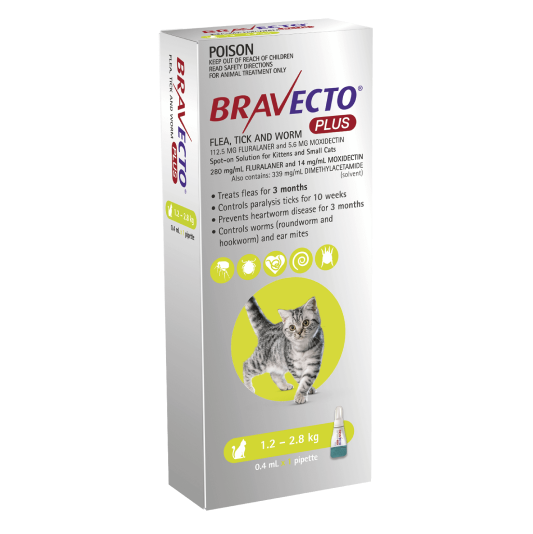
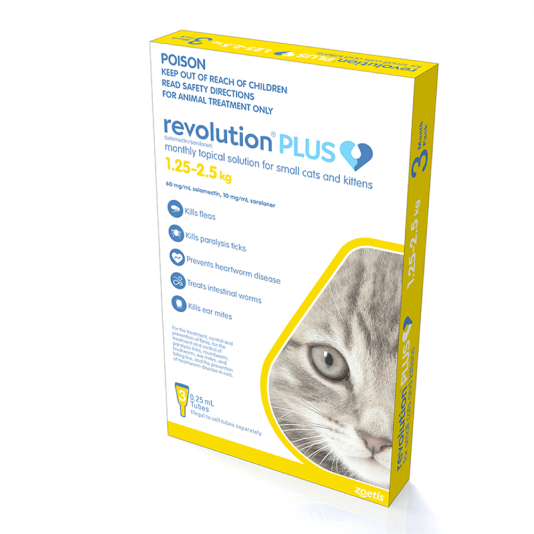
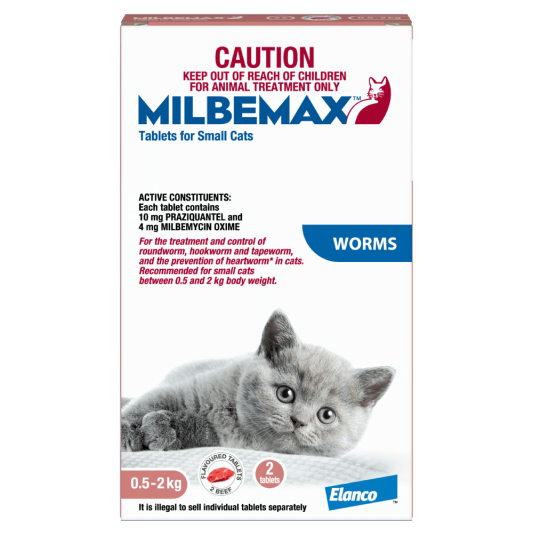
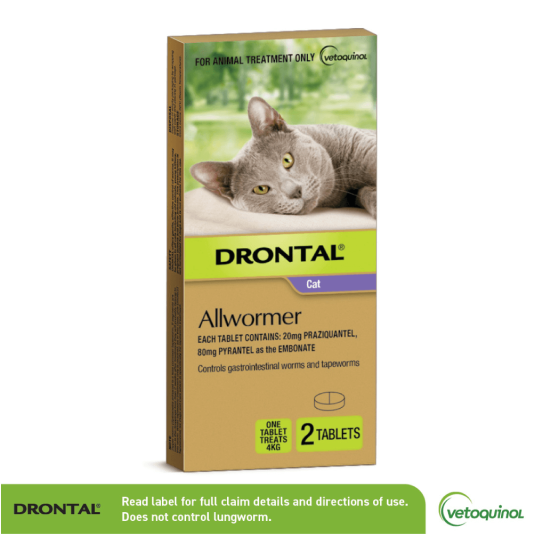
Why Does My Kitten Run Around Like Crazy and Wake Me Up at 2am!?
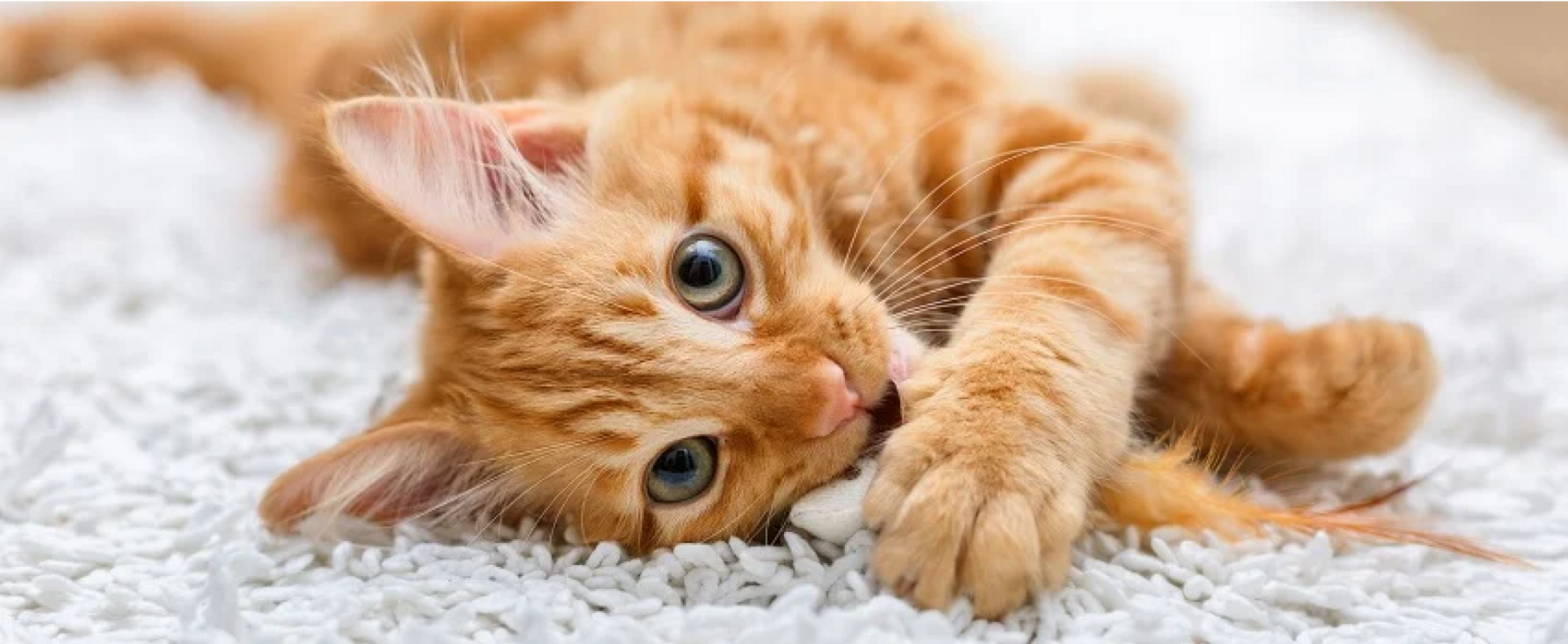
The midnight 'zoomies' or a hyperactive burst of energy, is something that most cat owners are only too familiar with. All cats are known from time to time to have these episodes where they run around like crazy, jumping and knocking things over....often this is in the middle of the night when we are trying to sleep. While these 'zoomies' may not be much fun for the owner who is having their toes pounced on in the middle of the night, these episodes are very common in kittens and cats.
So why do cats do this and what can owners do to get a good night's sleep?
The theory is that cats are naturally active during the night because this is when their natural prey such as mice are active. When we are away all day at work or school, our cats tend to sleep which can lead to a lot of pent up energy. This energy gets released at night time, which can lead to some serious midnight 'zoomies'!
Keeping your kitten entertained during the day can help them burn energy and in turn sleep longer at night time. Interactive toys will keep your kitten mentally and physically stimulated during the day when you are not home or available to play with them.
If you have trouble sleeping or generally do not enjoy being woken up in the middle of the night, then consider placing your kitten in a separate room, crate or playpen to allow you to sleep undisturbed. If you start this from the time you bring your kitten home, they will likely accept this as normal and will adjust very quickly.
Want to know more about keeping a cat indoors only? Read our Guide To Keeping Indoor Cats Entertained.
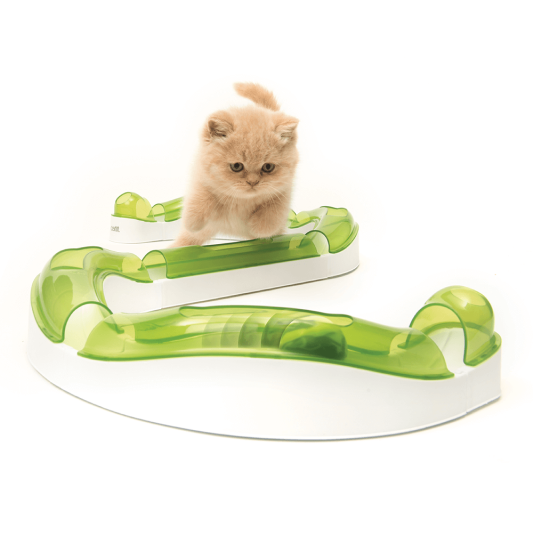
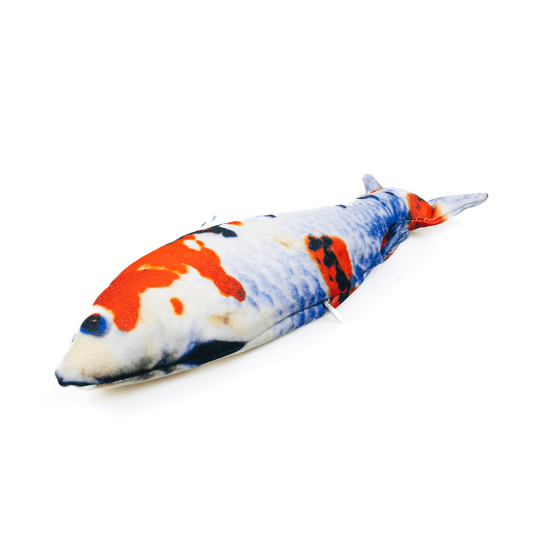
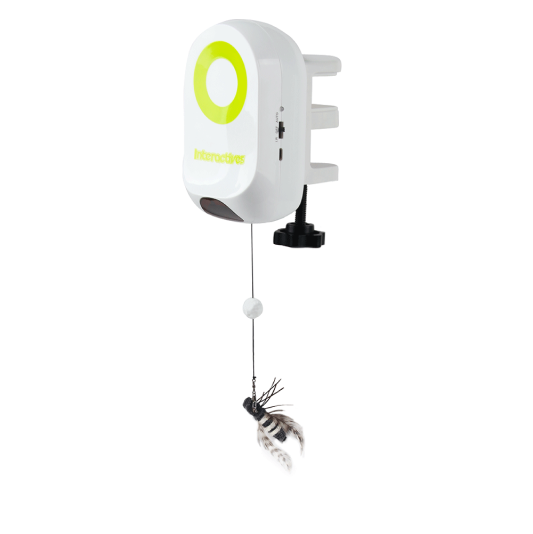
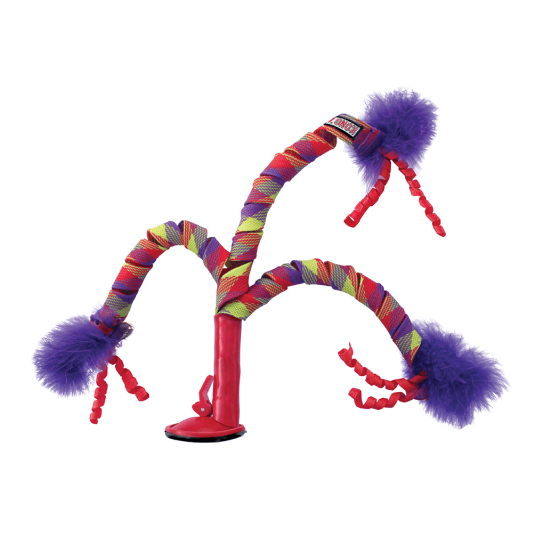
Does My Kitten Need Milk?
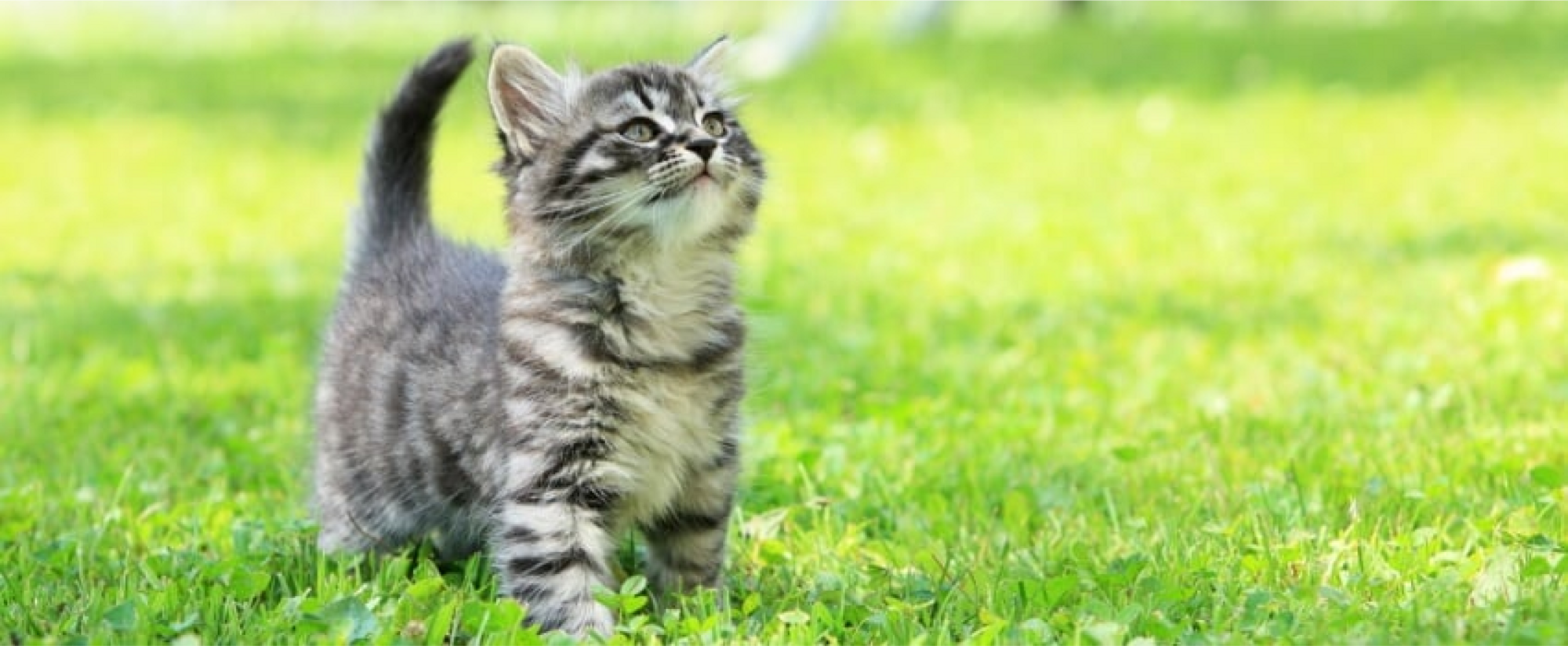
Kittens gradually wean off their mother's milk and begin to be able to eat solid food from about 4-6 weeks of age. Once your kitten has started on solid food, there is no need for milk other than as the occasional treat. It is important that if you are going to give your kitten milk, you only use lactose-free milk or pet milk Fresh water should always be provided. You may want to consider investing in a water fountain. Water fountains are beneficial for cats as running water encourages them to drink more, keepingthem hydrated and may decrease the incidence of urinary issues and kidney disease later in life.
How Do I Stop My Kitten From Scratching Everything!?
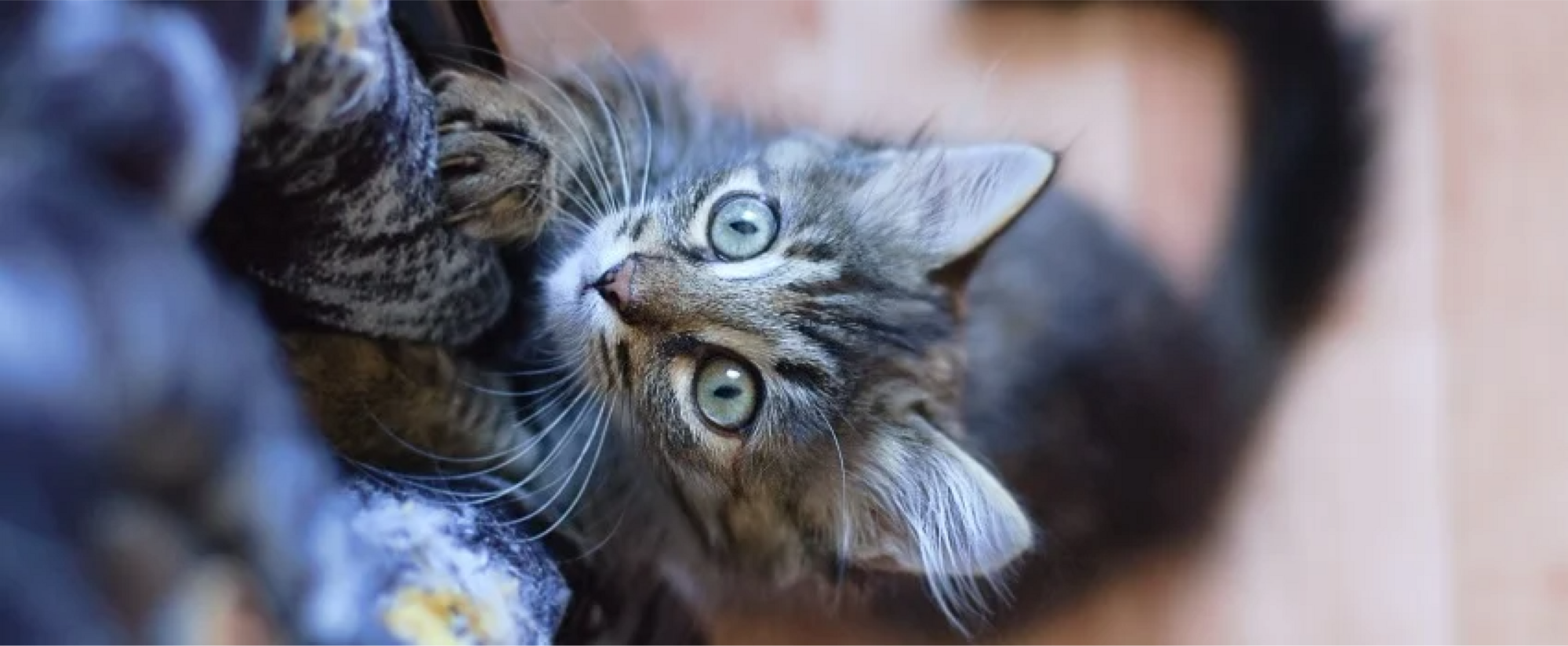
Scratching is a natural behaviour for kittens and cats. Cats scratch for many reasons. They use scratching to mark their territory both visually and through scent which comes from the glands in their paws. Scratching also helps to shed the outer layer of their claws and keeps them nice and sharp. While this is normal behaviour in our feline friends, it is very undesirable for us if the area that they choose to scratch is our favourite couch or carpet!
Here are some tips to help your kitten establish good scratching habits:
- Provide plenty of scratching posts
- Try different types and textures of scratch posts as they will often have a preference. Initially try one of each - carpet, rope, cardboard to see which one your kitten prefers
- Try vertical and horizontal scratch posts. If your kitten is already scratching some undesirable locations then apply some no scratch spray to discourage scratching. Double sided tape or sticky paws applied to high scratch areas can also prevent scratching as cats and kittens do not like the feel
- Keeping your kitten's claws clipped short can help minimise the damage done from normal scratching behaviour
If scratching is an ongoing issue, then a visit to the veterinarian is recommended. Sometimes scratching can be a sign of anxiety and your veterinarian can recommend some strategies to help you manage these symptoms. Declawing cats and kittens robs them of their natural instincts to scratch and is now banned in Australia.
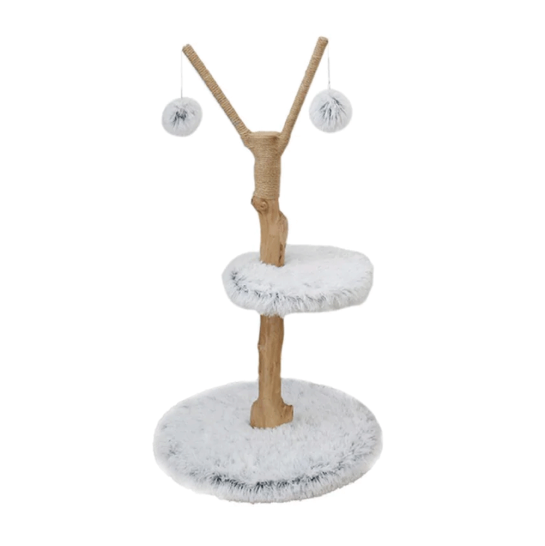
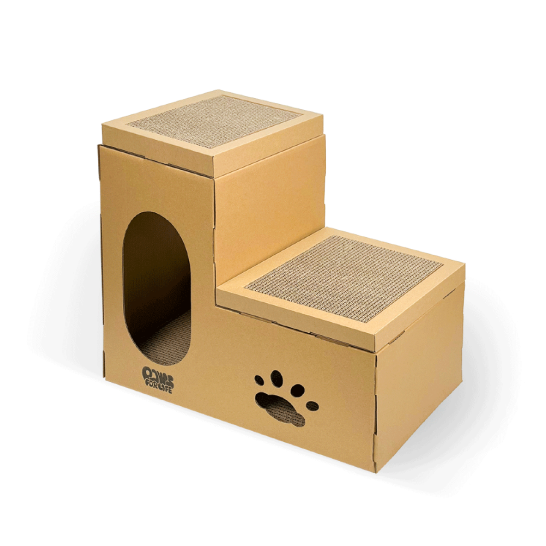
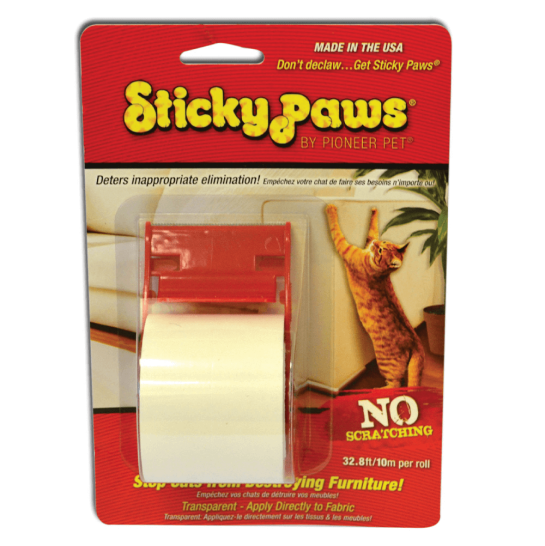
When Should My Kitten Be Desexed?
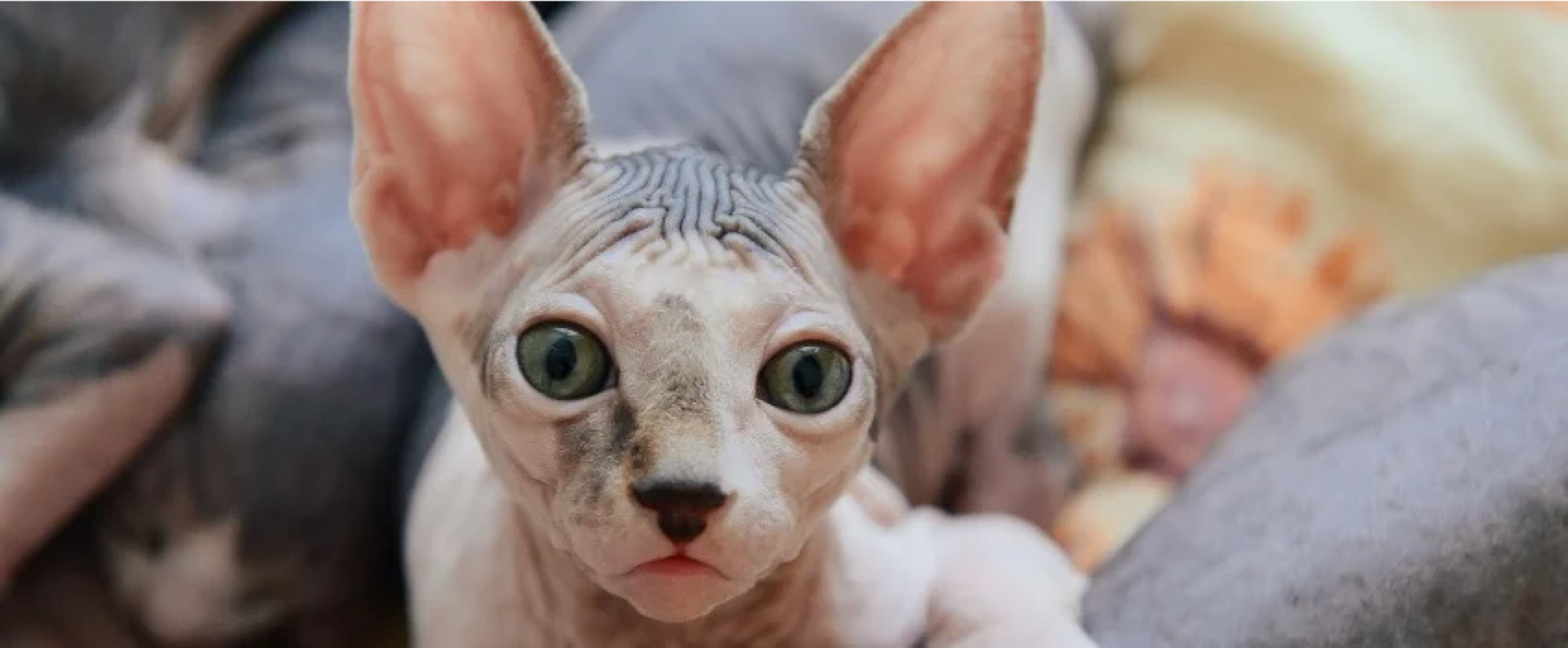
Most vets recommend desexing kittens at about 5 to 6 months of age. In some cases kittens can be desexed as early as 8 to 16 weeks depending on the size and breed of the cat. RSPCA Australia supports early age desexing as an effective way to reduce unwanted pregnancies and rehome cats as soon as possible.
Did you know that cats can start breeding as young as four months of age! Desexing your kitten before he or she reaches sexual maturity (from 4 to 6 months of age) will prevent unwanted pregnancies as well as reduce roaming behaviour and territorial marking. Allowing your female cat to roam outdoors prior to desexing will increase their likelihood of falling pregnant.
Fact: Just one female cat and her offspring can produce up to 5000 cats in seven years!
Want to know more? Read our article Everything You Need to Know About Desexing.
Do I Need To Trim My Kitten's Nails?
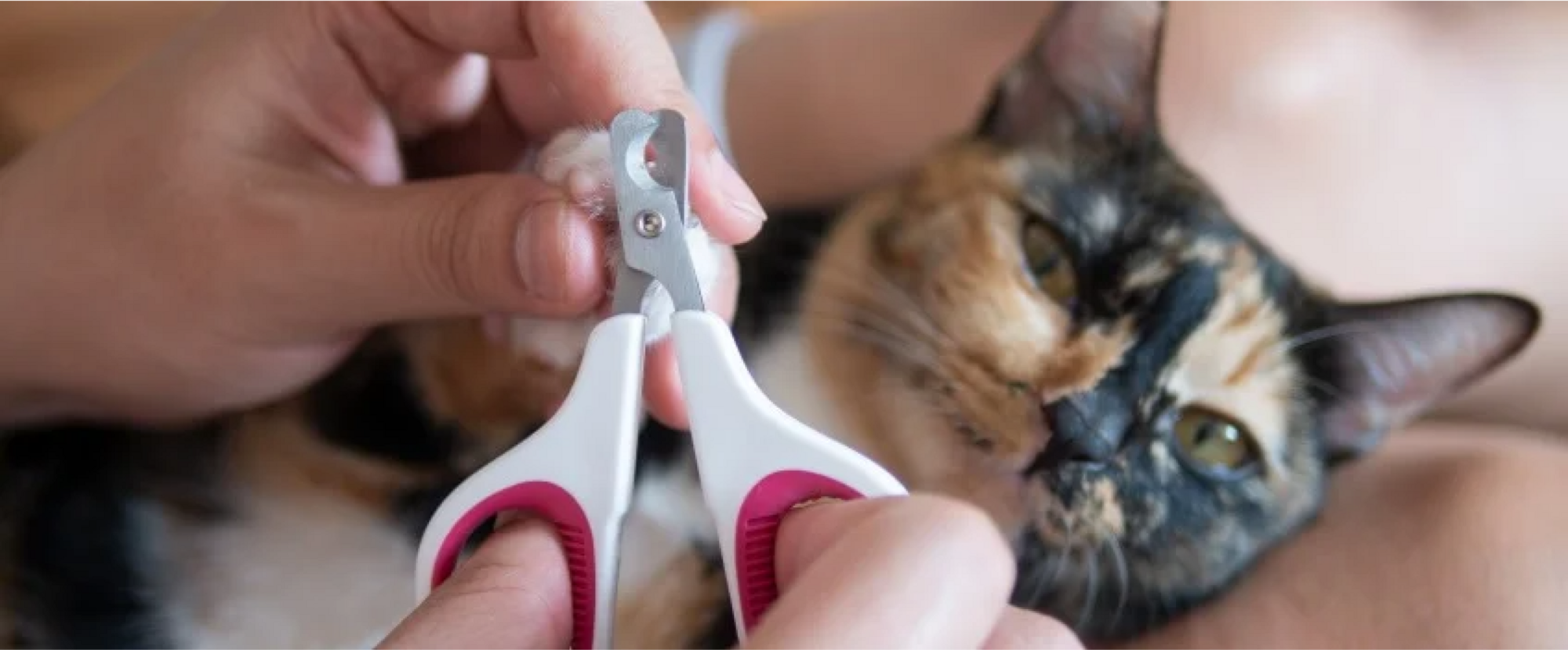
Your kitten will grow quickly and so will their nails, which can be sharp and painful. Trimming your kitten's nails and providing them with a range of different scratchers can help to prevent painful scratches from playing and minimise damage to furniture or other surfaces in the house. Nail trimming can be daunting for both you and your kitten and if not done carefully it can result in pain and sometimes bleeding too!
The first step is to choose a pair of clippers that suit your pet. For kittens I would recommend using a smaller pair of clippers that are suitable for little paws and start practising clipping your kitten's nails from 8 weeks of age.
It is a good idea to get your kitten used to being held and having their feet handled from a young age. The best time to try is when your pet is relaxed, perhaps when they are on your lap or having a cuddle. Make sure that they get plenty of rewards and encouragement when they let you do this. Treats such as a Lick Mat smeared with a Dine Creamy Treat can serve as a good distraction.
It is really useful to have a second person to hold your kitten while you clip their nails. Ask your helper to gently hold them around the shoulders in the sitting or standing position. Gently pick up the foot and carefully cut the nail. Be sure to trim only the very tip of the nail to avoid hitting the nail bed or 'quick'. Cutting the nail bed can be very painful and result in bleeding so it is recommended that you take a little off at a time to avoid this. If your kitten has white nails, you are in luck! You should be able to see the pink of the nail bed making it easier to avoid.
With kittens that really dislike having their nails clipped, try doing it gradually, for example a paw or even a nail at a time. Reward your pet for their good behaviour and with time and patience you should be able to build up to doing more nails per session.
Don't worry if you do accidentally cut the nail too short, even veterinarians, nurses and groomers do this from time to time. Often the nail can seem to bleed a lot! Don't worry too much though, just like with any other small cuts your pet's blood will clot at the wound site and bleeding will stop with time. Apply a tissue and some pressure to speed this along. If your pet will tolerate it, apply a small bandage for an hour or so to help stop the bleeding and if you are concerned give your local veterinary clinic a call.
Many veterinarians or nurses are more than happy to give you lessons on how to cut your kitten's nails if you do not feel confident enough to give it a go. Just ask the next time your kitten is due for their vaccination or check-up.
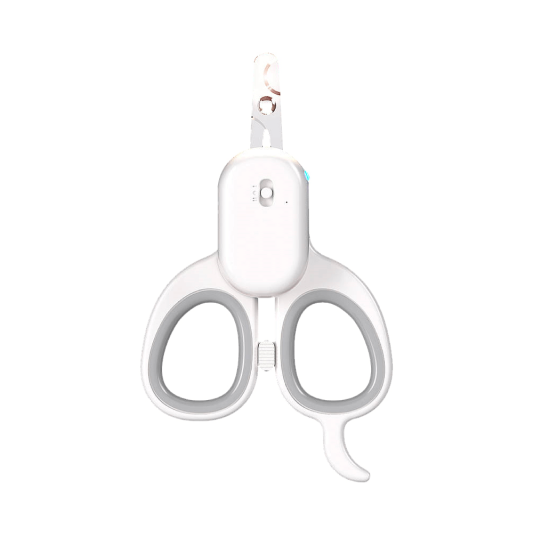
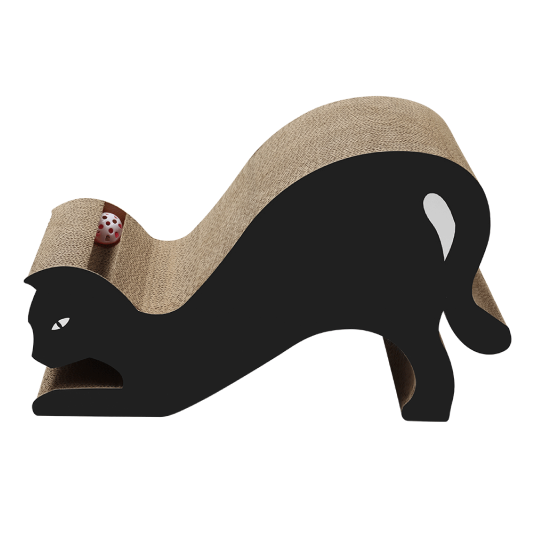
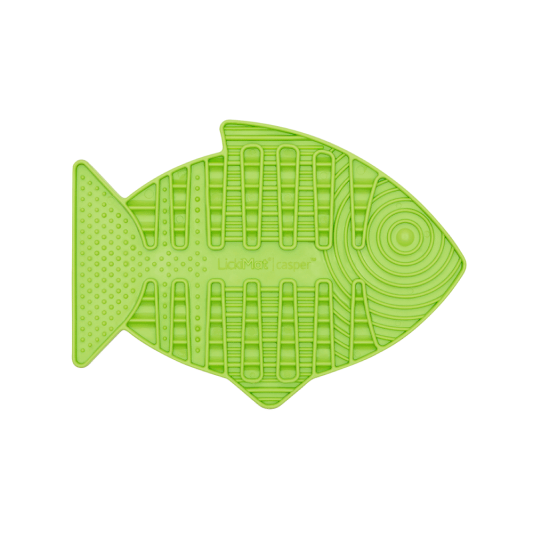
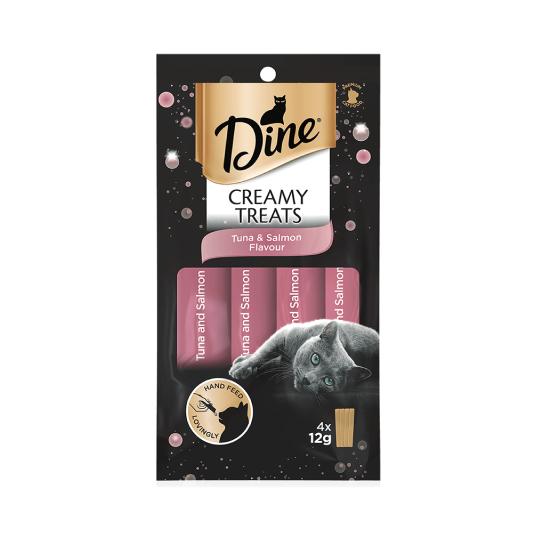
What Litter Should My Kitten Use?
When young kittens are first weaned and are still learning to use the litter tray, it is common for them to attempt to eat the cat litter. For this reason, it is recommended to opt for biodegradable litters such as Tofu, Corn or Recycled Paper, which are much less likely to do harm if taste tested.
For young kittens, it is best to avoid clumping clay (sodium bentonite) or crystal litters, which can cause illness if ingested or inhaled.
For more information about toilet training and litter tracking, see How To Toilet Train Your Kitten and How To Reduce Litter Tracking.
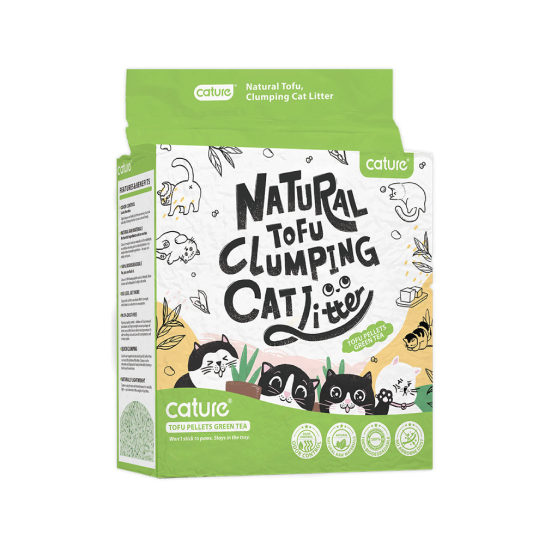
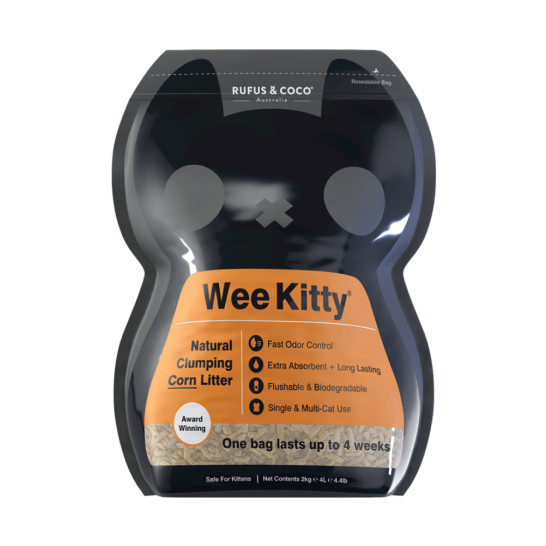
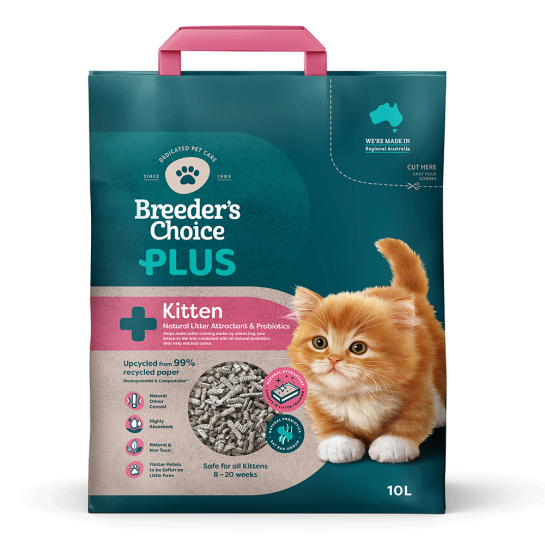
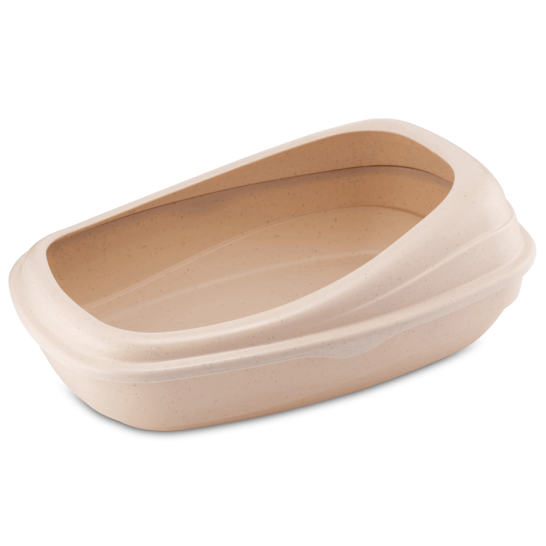
Do I Need To Bathe My Kitten?
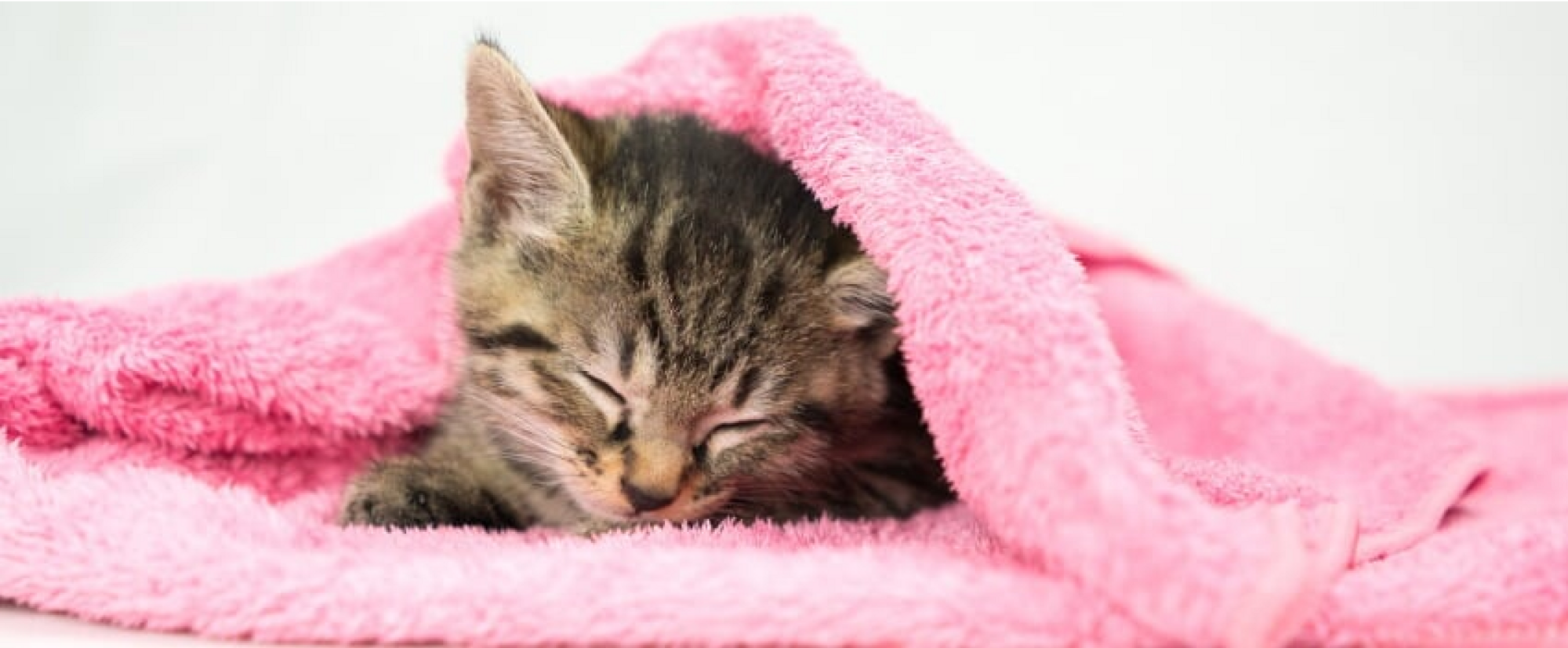
Cats are very clean animals and generally do not need bathing as they are generally great at grooming themselves! Occasionally kittens can get a little dirty, especially when first eating and using the litter tray.
If your kitten does require bathing, use a shampoo and conditioner specifically for sensitive skin or kitten specific to help protect their soft skin and keep your kitten's coat smooth and shiny. For quick clean ups you can use pet cleansing wipes and coat refreshing sprays. Bathing your kitten too frequently may dry out their skin which can cause itching or flaking.
Looking for more information? Read our veterinary written article Cat Grooming Guide.
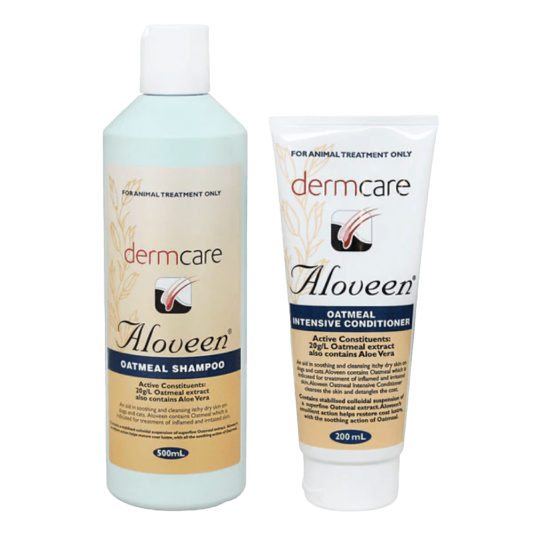
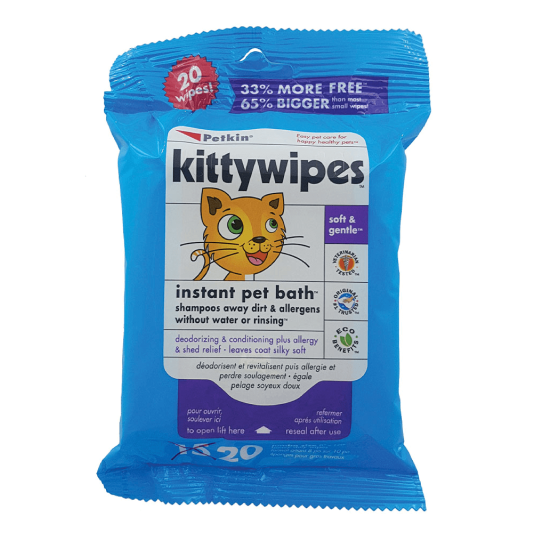
Should I Let My Kitten Go Outside?
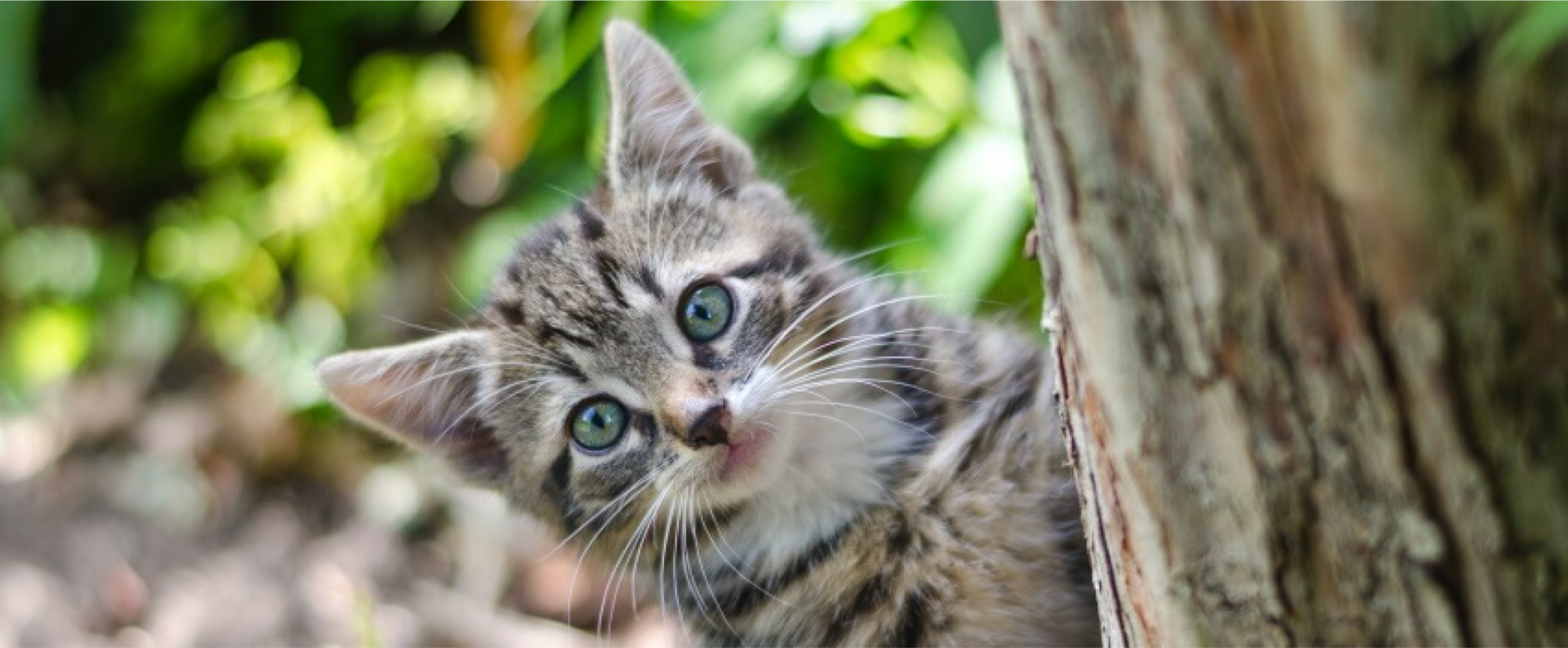
It's important to consider whether your new kitten will live totally indoors, outdoors, or spend a bit of time in both. There are advantages and disadvantages to each and it pays to think carefully about your location, proximity to main roads and neighbours, and the risk of incidents such as dog attacks and snake bites. The RSPCA advocates keeping cats exclusively indoors for many reasons, all of which are highlighted below:
Benefits of keeping your kitten indoors only:
- Protection from injury from car accidents
- Protection from injury from dogs and other cats
- Less likely to develop cat fight-related injuries (abscesses) or catch infectious diseases (Feline Immunodeficiency Virus (FIV))
- Reduces the impact of hunting
- Protection from paralysis ticks
- Less likely to wander into unfriendly territory or be exposed to cruelty
Disadvantages of keeping your kitten indoors only:
- Can lead to distress and behavioural issues when older cats with previous access to the outdoors are suddenly confined indoors
- Generally less active and more likely to develop obesity and obesity-related health problems such as diabetes and urinary tract disease.
Whichever decision you make, we recommend implementing the living arrangements early on as cats are much more likely to cope if they've been trained from a young age. Cats that have always had access to the outdoors can quickly become distressed if suddenly kept indoors, which can lead to behavioural issues.
Indoor cats also don't have to live totally indoors - access to an outdoor escape-proof enclosure is highly recommended to provide environmental enrichment and stimulation. Directly supervising your cat while outdoors is another way to help reduce the risks, and if you don't have an escape-proof backyard you can train them to walk on a harness and lead or take them for walks in a cat backpack. Avoid walking your cat in places that may cause them stress such as near main roads and where dogs are being exercised.
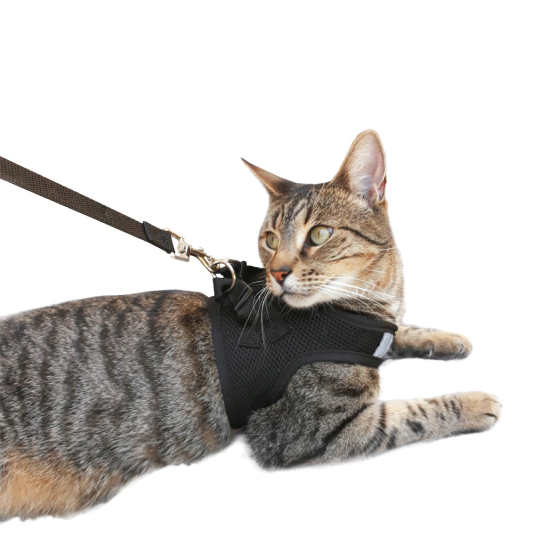
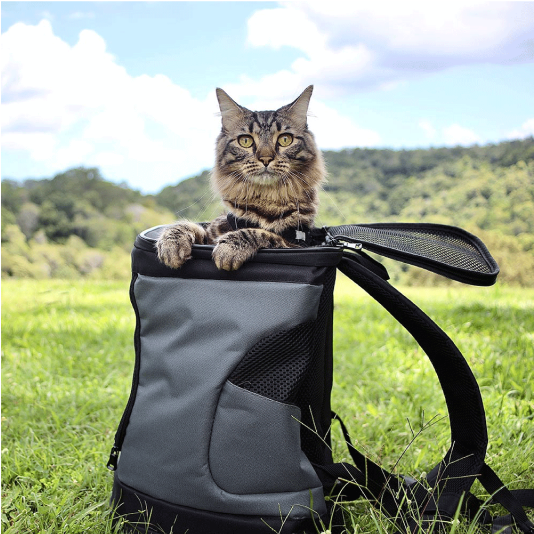
Further Reading
Want to know more? Check out our Discover Page for more tips on keeping your pets happy and healthy.